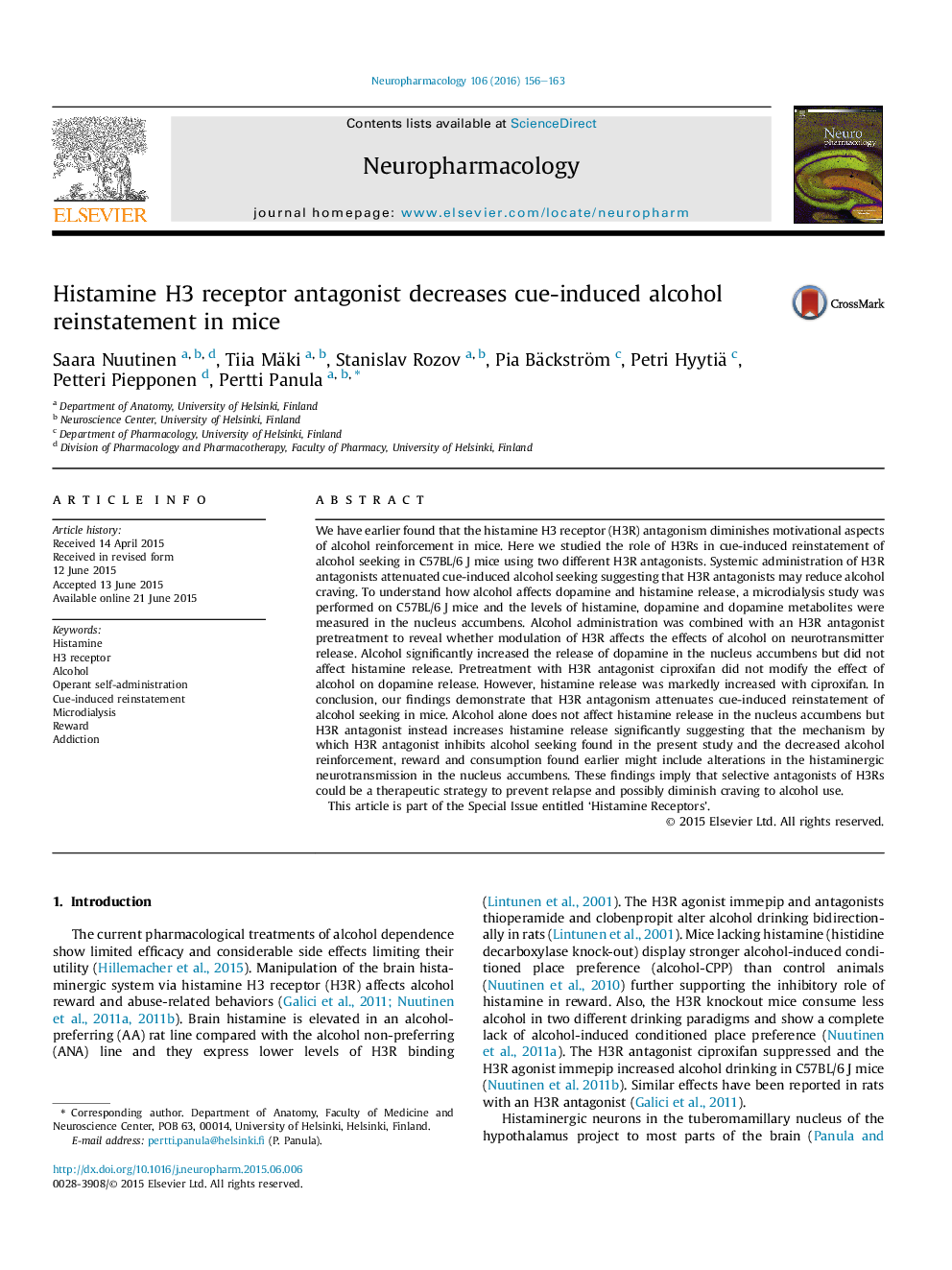| کد مقاله | کد نشریه | سال انتشار | مقاله انگلیسی | نسخه تمام متن |
|---|---|---|---|---|
| 5813447 | 1556609 | 2016 | 8 صفحه PDF | دانلود رایگان |
- Operant oral alcohol administration paradigm in mice was established in this study.
- Operant responding was reinstated by cues associated with alcohol administration.
- Histamine H3 receptor antagonists inhibited cue-induced reinstatement of alcohol seeking.
- Alcohol did not affect histamine release in nucleus accumbens.
- H3 receptor antagonist increased histamine but not dopamine release in nucleus accumbens.
We have earlier found that the histamine H3 receptor (H3R) antagonism diminishes motivational aspects of alcohol reinforcement in mice. Here we studied the role of H3Rs in cue-induced reinstatement of alcohol seeking in C57BL/6Â J mice using two different H3R antagonists. Systemic administration of H3R antagonists attenuated cue-induced alcohol seeking suggesting that H3R antagonists may reduce alcohol craving. To understand how alcohol affects dopamine and histamine release, a microdialysis study was performed on C57BL/6Â J mice and the levels of histamine, dopamine and dopamine metabolites were measured in the nucleus accumbens. Alcohol administration was combined with an H3R antagonist pretreatment to reveal whether modulation of H3R affects the effects of alcohol on neurotransmitter release. Alcohol significantly increased the release of dopamine in the nucleus accumbens but did not affect histamine release. Pretreatment with H3R antagonist ciproxifan did not modify the effect of alcohol on dopamine release. However, histamine release was markedly increased with ciproxifan. In conclusion, our findings demonstrate that H3R antagonism attenuates cue-induced reinstatement of alcohol seeking in mice. Alcohol alone does not affect histamine release in the nucleus accumbens but H3R antagonist instead increases histamine release significantly suggesting that the mechanism by which H3R antagonist inhibits alcohol seeking found in the present study and the decreased alcohol reinforcement, reward and consumption found earlier might include alterations in the histaminergic neurotransmission in the nucleus accumbens. These findings imply that selective antagonists of H3Rs could be a therapeutic strategy to prevent relapse and possibly diminish craving to alcohol use.This article is part of the Special Issue entitled 'Histamine Receptors'.
Journal: Neuropharmacology - Volume 106, July 2016, Pages 156-163
